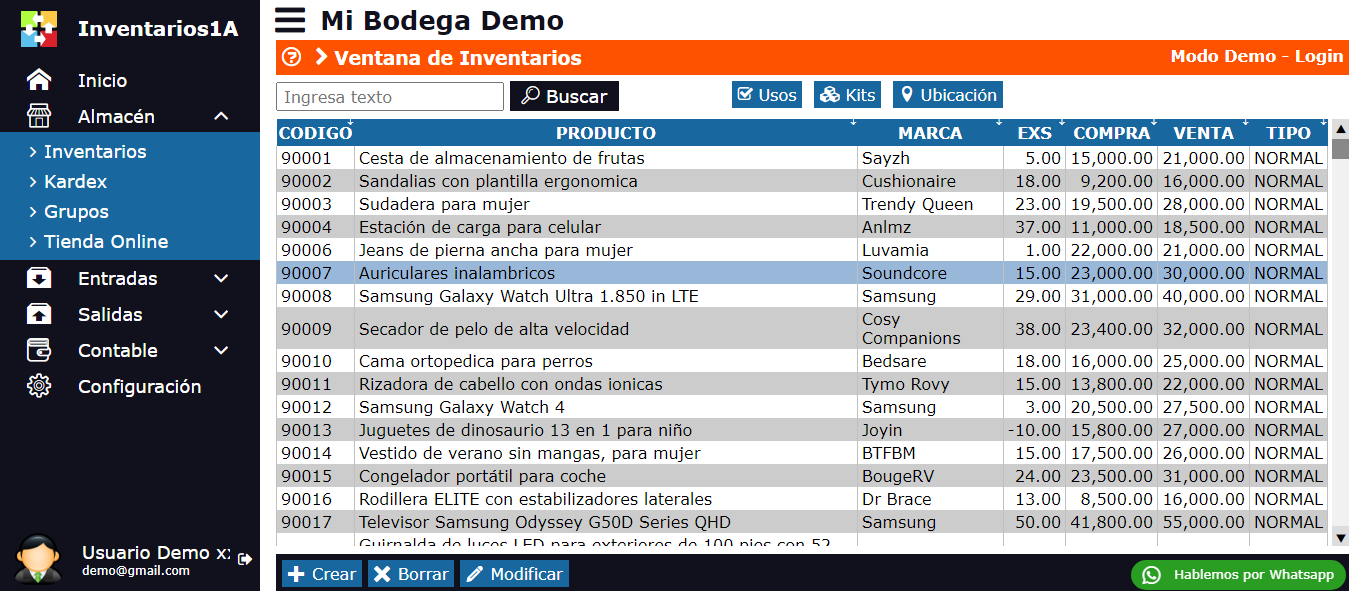The Importance of Accounting in Inventory Management
Accounting and inventory management are two disciplines that are intrinsically related in any company that handles physical goods. Accounting not only helps to record and analyze financial operations, but also plays a crucial role in the efficient management of inventories. Adequate inventory accounting is essential to maintain profitability, optimize operating costs, and ensure customer satisfaction. In this article, we will explore why accounting is vital in inventory management and how it can impact the overall success of a business.

Inventory Control and Valuation
One of the main roles of accounting in inventory management is inventory control and valuation. Each inventory unit has an associated cost, and it is essential for the company to know this cost in order to calculate profit margins and the total value of the inventory correctly.
There are several inventory valuation methods, such as FIFO (First In, First Out), LIFO (Last In, First Out), and Weighted Average Cost (WAC), each with its own accounting and tax implications. The choice of valuation method can significantly affect the company's financial statements and the strategic decisions made based on them.
For example, in times of inflation, the LIFO method may show a higher cost of sales and, therefore, a lower net profit, which could have tax implications. On the other hand, FIFO may give a more optimistic view of profit, but may not reflect the real cost of replacing inventory. Accounting helps companies choose the most suitable method according to their needs and apply this method consistently.
Optimization of Cash Flow
Inventory management is closely linked to a company's cash flow. Poorly managed inventory can lead to excess stock, which means that the company's resources are tied up in products that are not selling quickly. This can negatively affect cash flow and, consequently, the company's ability to cover operating costs or invest in other areas.
Accounting allows for accurate tracking of inventory levels and turnover. Through the generation of detailed financial reports, accountants can identify when inventory needs to be replenished and when purchases need to be reduced to avoid excess stock. Additionally, accounting analysis can help identify seasonal demand patterns, allowing for more precise planning and better cash management.
Detection and Prevention of Losses
Another crucial aspect of accounting in inventory management is the detection and prevention of losses. Discrepancies between accounting records and physical inventory can indicate problems such as theft, loss due to deterioration, or errors in the recording process. Conducting regular audits and reconciling accounting inventories with physical inventories is essential to minimize these losses.
Accounting also provides tools for keeping a detailed record of inventory entries and exits, making it easier to identify potential irregularities. For example, a robust accounting system will allow tracking each transaction and detecting anomalies that could suggest the existence of fraudulent practices or inefficiencies in inventory management.
Strategic Decision Making
Accounting is not only important for operational control of inventory, but also a key tool for strategic decision making. Accounting information about inventory helps managers make informed decisions about purchases, production, and sales.
For example, accounting analysis can reveal which products have a higher turnover and which are staying on the shelves. This allows the company to adjust its purchasing and sales strategy to focus on high-demand products and reduce or eliminate those that are not selling well. Similarly, accounting can provide valuable information about the profitability of different product lines, helping the company focus on the items that offer the highest return on investment.
Compliance with Regulations and Tax Laws
Accounting management of inventory is also crucial for compliance with tax laws and regulations. Tax laws in many countries require companies to keep accurate records of their inventory and apply specific valuation methods. Inadequate inventory management can result in penalties, tax audits, or legal problems.
Additionally, international accounting standards, such as International Financial Reporting Standards (IFRS), establish clear guidelines on how inventory should be accounted for and presented in financial statements. Compliance with these standards is essential for any company operating internationally or seeking to attract foreign investors.
Accounting is a fundamental component in inventory management, as it not only ensures effective control and adequate valuation of stock, but also optimizes cash flow, prevents losses, and supports strategic decision making. In a competitive business environment, where efficiency and accuracy are key, good inventory accounting can make the difference between success and failure.
In Inventarios1A, we understand the importance of accounting in inventory management and offer solutions that integrate these two disciplines efficiently, ensuring that our clients can maintain rigorous and precise control of their inventory while optimizing their accounting operations.





